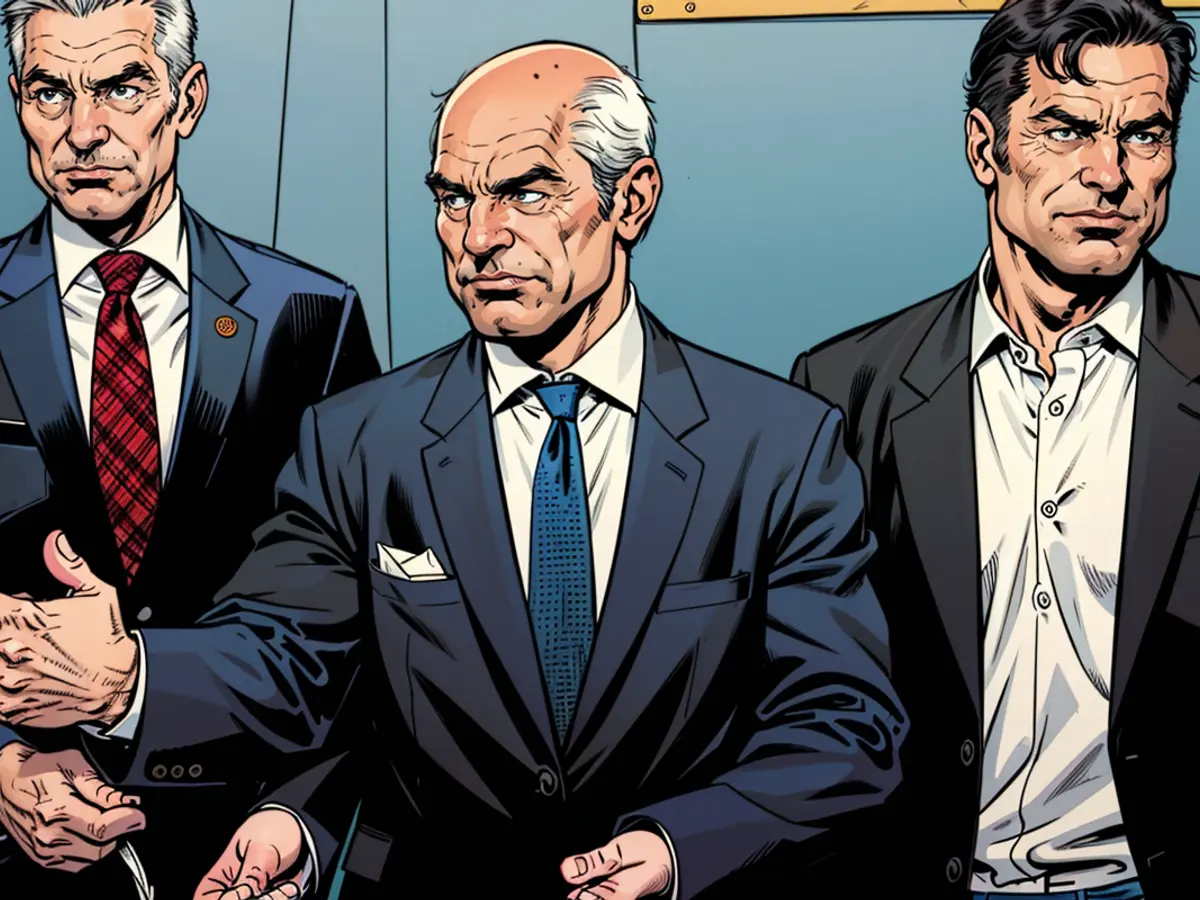Coalition leaders agree on 2025 budget and economic stimulus package
Scholz, Lindner and Bundeswirtschaftsminister Robert Habeck (Greens) completed the package in a session from Thursday afternoon to Friday early morning. This trio had a total of 23 meetings at the Chancellery and spent around 80 hours together to reach an agreement, Lindner stated.
The debt brake for the budget will not be suspended in 2025. The federal government will take on new debt of 44 billion Euro in the coming year - and with this credit acquisition at a total budget volume of 481 billion Euro, the debt brake requirements will be met, Lindner added. Investment expenditures are expected to reach a new record level of 57 billion Euro. Citizens will be relieved of 23 billion Euro in total in 2025 and 2026.
The agreed-upon fiscal stimulus initiative is expected to increase economic growth by approximately 0.5 percentage points in the coming year. As Vice Chancellor Habeck stated, the economic output is projected to increase by nearly 26 billion Euro according to initial calculations. The growth package includes tax incentives for working pensioners and overtime, bureaucracy reduction, and improved depreciation options for companies.
The two-percent target for defense spending is expected to be met in 2025, Lindner stated. The defense budget is projected to increase significantly to around 80 billion Euro by 2028. Germany will thus long-term meet the NATO goal of contributing two percent of its economic output to defense, even if the special fund for the Bundeswehr is completely exhausted, Scholz added. This year, the regular defense budget has a volume of around 52 billion Euro.
The package also includes measures to make the labor market more attractive. Foreigners will in the future be able to take a job without restriction - unless the employment office objects within 14 days. Previously, the employment office had to grant approval for employment.
"The biggest obstacle to growth is the labor market," Habeck said. He sees it as the "biggest lever for more growth." With a performance-based model, more long-term unemployed will be integrated into the labor market. At the same time, stricter monitoring will be required to ensure that welfare recipients accept offered employment, Habeck added.
Scholz, Lindner and Habeck reported in unison about challenging and intensive budget negotiations in the coalition. The Chancellor commented on this: "We don't make it easy for ourselves, we fight hard for the cause, and we seek compromises - sometimes half the night, sometimes the whole night," he said - and added: "Why? Because the alternative is not an alternative: to lose our nerves, give up, or abandon responsibility."
- The FDP, led by Christian Lindner, played a crucial role in the formation of the economic stimulus package, working closely with coalition leaders Olaf Scholz (SPD) and Robert Habeck (Greens).
- The agreed-upon Economic Stimulus Package will include tax incentives for working pensioners, as proposed by Vice Chancellor Habeck.
- The Coalition leaders have pledged to meet the debt brake requirements in 2025, despite taking on new debt of 44 billion Euro and a total budget volume of 481 billion Euro.
- According to Lindner, the new measures will help relieve citizens of 23 billion Euro in total by 2025 and 2026.
- The Coalition leaders have announced that they will make the labor market more attractive, including allowing foreigners to take jobs without restriction, as long as the employment office does not object within 14 days.
- The FDP has emphasized their commitment to meeting the two-percent target for defense spending in 2025, with the defense budget projected to increase significantly to around 80 billion Euro by 2028.
- The Coalition leaders, including Habeck, have reported on the challenging and intensive budget negotiations, highlighting their commitment to finding compromises and ensuring the success of the 2025 budget.







